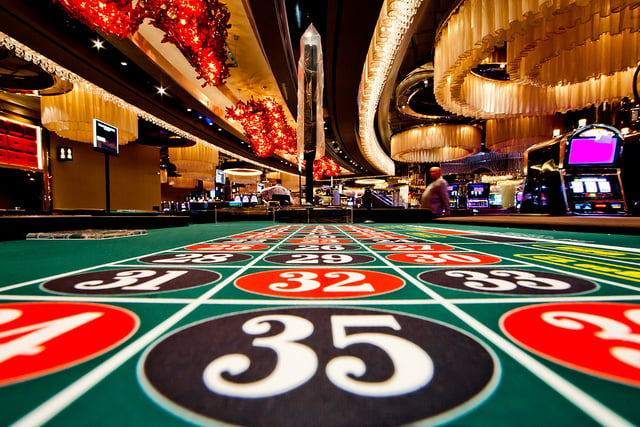
Casino activities have captivated gamblers for decades, drawing them into a realm of excitement, chance, and fortune. From the flashing lights of video slots to the tactical nature of poker tables, these activities offer a distinct combination of fun and hazard. However, underneath the surface of this glitz and glamour lies a sophisticated relationship of math that determines every conclusion and decision made within the gaming hall.
Understanding this relationship between gambling games and mathematics not just improves the player’s journey but can also help players make informed selections. Whether you are a occasional punter or a avid enthusiast, recognizing the mathematical principles at play can provide important understandings into probability, ratios, and strategies, eventually influencing how one tackles these games of luck.
Arithmetic Likelihood in Gambling
In the world of casino games, mathematical probability plays a crucial role in determining results and informing player decisions. Every game has a specific set of regulations and a particular likelihood framework that influences its dynamics. For example, in activities like roulette, players must comprehend the chances of hitting a particular number or color. The probability of certain occurrences occurring can be assessed, and this knowledge can greatly affect wagering tactics.
Gambers also need to be cognizant of the casino edge, which is the statistical advantage that casinos hold over gamblers in the long term. This advantage differs across different games. In blackjack, skilled players can use tactics to reduce the house advantage to as little as one percent, while in activities like slot machines, the casino edge can be substantially larger. Comprehending the casino edge allows players to make wise choices about which games to participate in and how much to bet.
Additionally, likelihood is fundamental in the principle of danger versus reward in gambling. Every bet carries a particular risk factor, and gamblers must assess the possible return against that risk. Activities like poker require players to not only calculate the chances of their personal showing winning but also to evaluate the probabilities of their rivals’ hands. By applying mathematical principles to their strategy, gamblers can improve their chances of success and engage more strategically in the thrilling world of gambling activities.
Anticipated Worth in Casino Games
When talking about casino activities, one of the basic ideas rooted in math is the anticipated worth. This numerical metric assists gamblers understand the possible outcomes of their wagers over time. In basic terms, anticipated value (EV) determines the average amount a player can anticipate to gain or suffer per bet if they were to play the game repeatedly. Each activity has its unique EV, influenced by the probabilities and the casino advantage, which indicates the benefit that the gambling establishment holds.
For instance, think of a game like the roulette game. The expected worth can be derived based on the particular wager made. jeux casino en ligne If a player bets on a individual number, the return is 35 to 1, but the actual chances of success that bet are 1 in 37 (in Euro roulette). This results in a detrimental anticipated value, indicating that, on average, gamblers will lose money over a period when playing this kind of bet. Grasping this concept allows gamblers to make better educated choices about which games and wagers may be less advantageous.
Moreover, the investigation of expected worth can lead to improved bankroll management. Gamblers who comprehend the mathematics behind their activities are often able to set practical expectations. By recognizing their possible deficits and gains, they can modify their gambling strategies appropriately, which may improve their total gaming experience overall. As a result, anticipated worth serves as a critical resource for both novice and experienced gamblers to steer through the frequently volatile nature of gambling games.
Strategies and Chances: The Arithmetic Behind Winning
In gambling games, grasping the chances is essential for gamblers looking to boost their likelihood of success. Each activity has its own unique set of odds that establish successful results, and these numbers are often presented in the gaming rules or payout schedules. For instance, in games like 21, gamblers can improve their probabilities through strategies such as tracking cards, which depends on arithmetic concepts to gain an advantage over the establishment. By acquainting themselves with the probabilities, gamblers can make more educated decisions on when to wager and when to give up.
Furthermore, the concept of average value holds a critical role in gambling strategies. Expected value determines the average outcome of a wager over time, allowing players to assess whether a certain bet is valuable taking. For example, slot machines have a set return percentage, which can show the expected return a player can look for on their wagers. By opting for activities with greater payout percentages, gamblers can minimize the casino edge, maximizing their future winnings in the future.
Lastly, successful gamblers often employ a combination of luck and math strategy to improve their gaming experience. While chance is unpredictable, managing a staking plan based on mathematical insights can lead to more advantageous situations. By utilizing techniques such as money management and game selection, participants can apply math to navigate the unpredictable nature of gaming, making the most of their time and investments at the tables.
